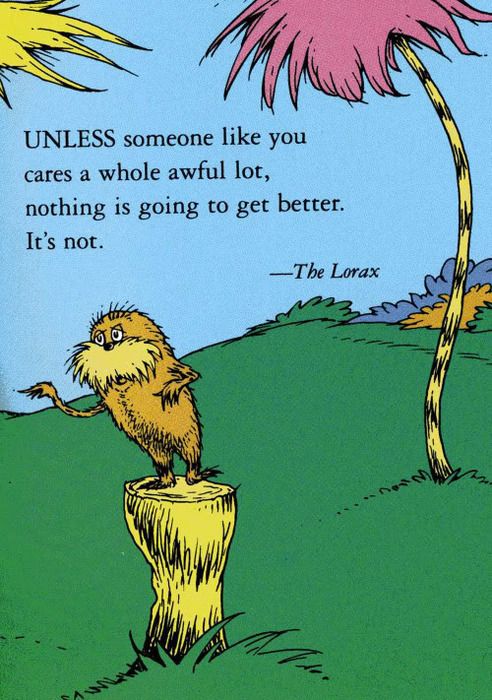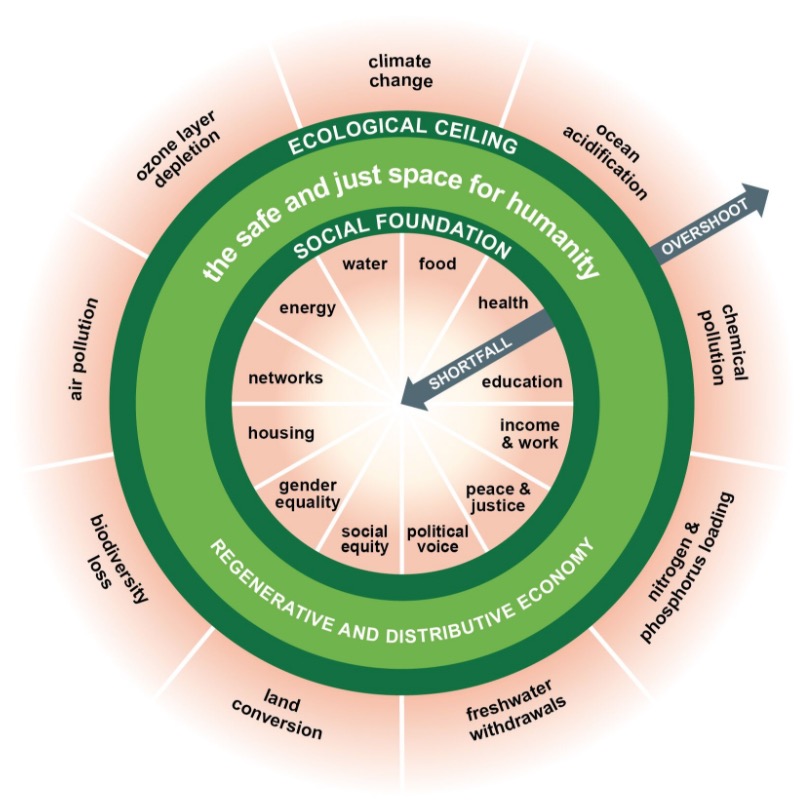
VASU: Today morning, in my daily video chat with my parents I had an interesting conversation with my grandmother. Usually she’s based in our hometown (which is a few hundred kilometers away from Mumbai), but has been temporarily visiting since temperatures have soared up (with 40 degree Celsius days – which is unusual even for us tropical folks) and water availability has gone down (currently the State of Maharashtra in India is facing a bad drought – and climate change makes it worse). I usually make it a point to call her once a month and catch up, but in these last few days in Mumbai she seems less of her usual self. Which makes sense given that her routine is interrupted and she’s had to adjust to a different sort of life (even though it may be temporary).
I think we all know the feeling when that happens – our routines are important reminders to us that life is all about having safety, security and a sense of certainty that tomorrow is not going to look any drastically different than today. For me routine is a concept I’ve had to grapple with for several years as I lived on an 8 month lease during the school year and on a suitcase that changed depending on the season (whether it was in Canada or in India). However, that is a different story for a another day 😉
Today’s story is actually based on some thoughts reading this book called Doughnut Economics (by Kate Raworth) and the idea of living in within the Doughnut or this “safe and just space for humanity” and also why connecting with our grandparents or a previous generation might teach us a thing or two about inspiration and the road ahead.
Raworth makes an interesting case for how society is functioning on economic models and ideas that were written 70 years ago. These theories fixated on abstract things like GDP as an indicator of human progress. She mentions that in the current world, progress indicators need to look quite different if we are to save our futures in time from climate change. Her solution is to simply start caring more and use these “touchy-feely” economic ideas (of social, environmental and human progress) to ensure that our decisions are actually humanistic in nature. She says, “today we have economies that grow, whether or not they make us thrive; what we need are economies that make us thrive, whether or not they grow”.
Around the same time that these traditional ideas of economic growth took off, some of our grandparents lived through one of the most turbulent times in the world – with World War II just ending and the birth of modern globalized society starting to emerge from its ruins. We all know how far we’ve come in that short span of 7 decades – where collectively humanity has overcome some of the greatest obstacles such as worldwide health epidemics (small pox, polio, Ebola just to name a few), travelled to the moon (and now Mars), reduced poverty a great deal and innovated technology that makes connect with each other than ever before.
But yet, we see countries are trying to build walls to keep diversity and change out. One example is India – where general elections just took place and the grounds for winning was nationalism (which in India means a religious majority winning on regressive cultural issues like cows, patriarchy, among other things). It took me a while to accept the fact that the world’s biggest democracy (consisting of millions of educated individuals) choose to elect a government based on this notion of so-called Indian tradition and why things like climate, food, water and good jobs were not the most important issues for the future.
MATT: For several people that are educated, empowered and consider themselves to be global citizens, it becomes hard to understand why others do not think that way when it seems more progressive, fairer and more inclusive alternative than the opposite. Yet we see populist politics rising every where – from Trump’s US to UK’s Brexit and from India’s nationalism to other authoritarian governments around the world.
VASU: I’ve been trying to figure out why and what is making people think that being regressive is the best option. And one thing crossed my mind as I was talking to my grandmother – is that people do not like change, but more importantly if they have to change (as the future will be when it comes to climate change) it will only happen when they feel safe, a sense of belonging and have certainty that their future is secured. And with all the things that globalization and capitalism brings, it has also brought with it a sense of uncertainity, insecurity and unreliability on those that are around us – making it the opposite environment to foster a safe space for large-scale and systems-level change.
As humans, we have a strong need to belong and feel accepted. But more recently, in the age of changing cultural identities and technological distractions, our sense of community has definitely taken a hit. It is in uncertain times like these that talking to our grandparents might teach us a thing or two about dealing with change. A good quote from another blog that we follow says this:
Similarly, my grandmother is someone that has lived through such times of volatility, raised four children mostly by herself and even managed to start farming afterwards. She’s been inspirational when she has shown confidence in the face of adversity. But today when I asked her about taking a walk in the park next door, she answered that she wouldn’t feel comfortable going alone.
For a woman who has led an unapologetic life and broke some stereotypes along the way, it made me wonder when did she start needing someone to be there when things changed. She, like the world war veterans, has had a life of ups and downs and yet now she falters when it comes to change. We often forget that grandparents are a vital source of knowledge of the past, of mistakes to avoid and of adventures to have. For anyone, old age is scary enough – but combine that with climate change and extremes (whether it is ideological or weather-related), it makes me realize that keeping those wise-old branches nurtured and feeling treasured is an important means of dealing with change.
MATT: But getting people involved in change can be a difficult task when you are dealing with someone who is more set in their ways of thinking – especially those that are one generation apart. For instance, I remember talking to my Nana about climate change more than a decade ago. We were in the middle of a cold winter and a cold spring, and she mentioned that she found it interesting that people talked about global warming considering it was so cold that year. But even as a 13-year old I knew that climate change and global warming were not just linked to the weather getting warmer. It had an impact on the earth’s climate – making hot days hotter and cold days colder. I remember saying there might be less of a distinction between seasons in the future, and now decades later we are finally starting to see it happen. Of course my Nana listened as any grandparent would, but I feel just talking about it regularly with someone who might be very set in their ways (a grandparent, parent or even someone older than you), can make a bit of a difference.
VASU: Yes, I think we need to remind those of an earlier generation that doing new things shouldn’t have to be necessity or anxiety-driven. By keeping a connection with the old and the new, we can prove that the future is better when we aren’t looking back at out-dated traditions (like in the case of India or other populist movements) or making mistakes of a past that isn’t sustainable anymore.
Today I also heard a podcast on this new book called Power of Agency – The Seven Principles to Conquer Obstacles, Make Effective Decisions and Create a Life on Your Own, and it made me realize that change often comes when something matters to you. This book is really interesting as it talks on the power of agency or confidence to do something different without feeling overwhelmed about it. It describes that isolation is the kryptonite to human agency – where it diminishes our ability to accept change/evolution. And who better to understand the cycle of change better than our grandparents.
I found it interesting that the booked talked about our ability to adapt to changing times through the 7 Principles of Agency, which are:
- Control our stimuli (keep those phones and distractions away!)
- Associate selectively (surround yourself with positive people)
- Move (endorphins through exercise make people happy!)
- Position yourself as a learner (in all situations – no exceptions)
- Manage your emotions (as though it is a balancing act)
- Check your intuition (not impulsively but as a source of additional data)
- Deliberate first and then act (think -> deliberate -> action)
MATT & VASU: So keep your phones down and take a walk (maybe literally) with your grandparents down the memory lane – ask them what stories they have, how they learned to accept change and make them feel valued before you start expecting them to understand today’s problems like climate change. These very human and personal connections are what will keep us going when change (including climate change) inevitably arrives in our lives.


Thank-you, I enjoyed your thoughts.